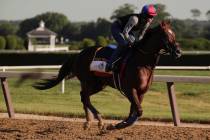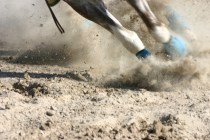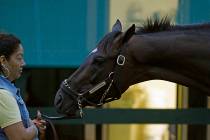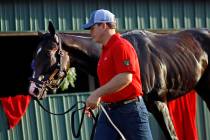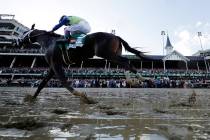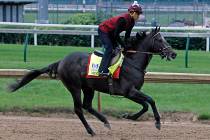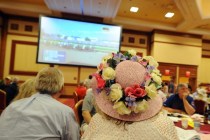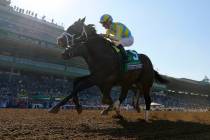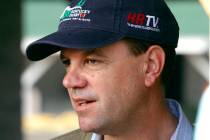Half-baked expose leads to confusing conclusions
On Sunday, the New York Times on its front page ran the first part of a three-part expose on the treatment of horses in racing. As one might imagine from the headline "Mangled Horses, Maimed Jockeys," it was a stomach-turner.
Where there is smoke, there is fire. However, a basic error with this opening installment is that it focused almost entirely on misdeeds in quarter horse racing in New Mexico. Most readers will not know that the quarter horse industry does not represent the thoroughbred industry.
The fact is both sports race horses, so they must be the same. That’s incorrect. It would be as if people lumped NASCAR and IndyCar racing together. Both race cars but are different sports.
For example, in October, driver Dan Wheldon died in an IndyCar race at Las Vegas Motor Speedway. Yet you didn’t hear critics blaming NASCAR.
Led by the work of the Jockey Club and the National Thoroughbred Racing Association, horse racing is working to make things safer for horses and riders. That includes research on track surfaces, compiling injury data and reassessing state medication rules.
Personally, I’d place more integrity on the injury data compiled by the Jockey Club than the New York Times. Not all horses that are vanned off, or did not finish a race, turn out to be injured.
Horse racing by its nature always will be dangerous. Put a 110-pound jockey on a 1,000-pound thoroughbred running at a top speed of 40 mph clustered among other horses, and bad things can, and do, happen.
Horses put all this pressure on spindly legs, thus the structure of the animals lends itself to leg injuries. Critics such as PETA — People for the Ethical Treatment of Animals — will say if that’s the case then why race horses at all.
First, the dogma of horse racing is to improve the breed. In theory, that’s why champion horses are bred to champion horses. Horses love to run, and that is what they are asked to do.
Secondly, if horses weren’t racing, what would happen to them? PETA would want horses to be set free, but we no longer are an agrarian society. The need for pleasure or work horses is limited. And it is well documented that horses in the wild are having difficulty surviving on their own.
Thirdly, horse racing remains one of the world’s most popular sports and for good reasons. It provides entertainment, a fun form of gambling and a regulated industry that generates thousands of jobs.
As with any industry, though, I subscribe to a "2 percent" theory. I believe that 98 percent of the people you meet are hard-working, law-abiding citizens. You must worry about the other 2 percent. What racing needs is the legal authority to root out the 2 percent that is ruining the game for the rest of us.
■ TWIN QUINELLA — Station Casinos will offer a $10,000 twin quinella every Saturday in April. That’s double the usual guaranteed prize pool for the bet.
Richard Eng’s horse racing column is published Friday in the Las Vegas Review-Journal. He can be reached at rich_eng@hotmail.com. Follow him on Twitter: @richeng4propick.



